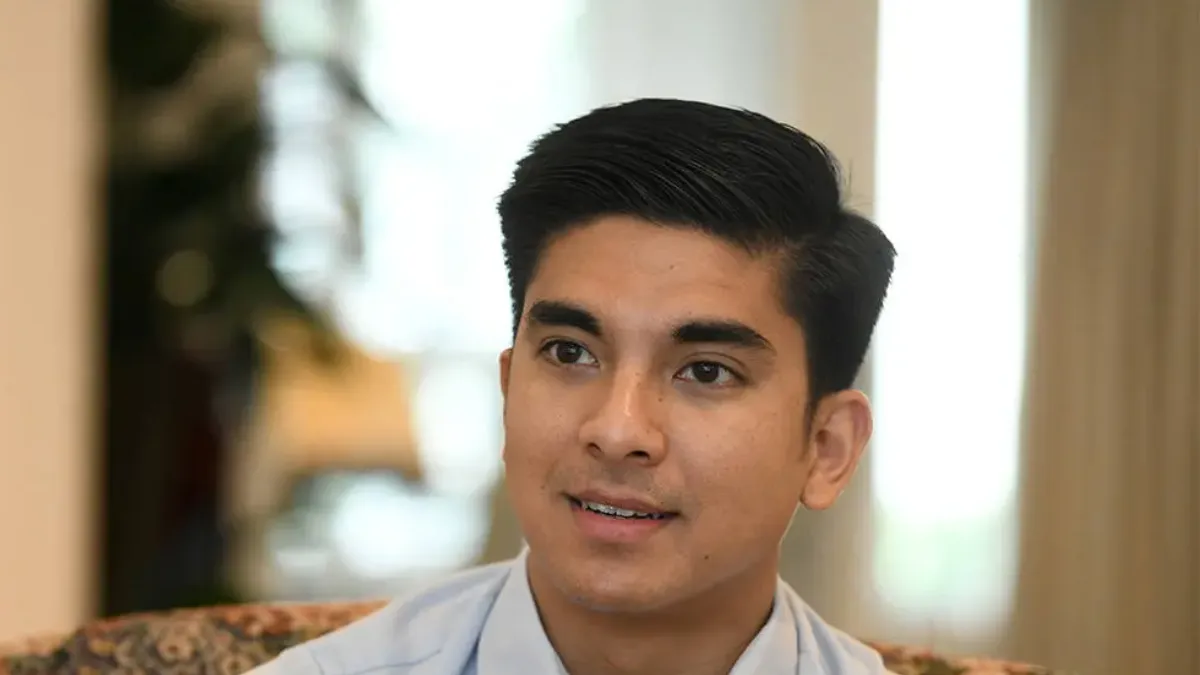In a landmark decision that reverberated through Malaysia’s political landscape, Syed Saddiq Syed Abdul Rahman, the 31-year-old former minister and Muar MP, walked free from the Court of Appeal on June 26, 2025, acquitted of all graft charges after a grueling five-year legal battle. Emerging tearful yet resolute, flanked by family outside the Palace of Justice, Syed Saddiq offered prayers of gratitude, his name cleared and his focus now firmly on the future.
This acquittal marks a dramatic turn in a high-profile saga that has gripped the nation, raising questions about integrity, political resilience, and the future of young leadership in Malaysia. While the courtroom victory offers a moment of vindication for the former youth and sports minister, the possibility of an appeal by the Attorney-General’s Chambers looms, casting a shadow over this apparent triumph.
A Legal Battle Concluded—For Now
The Court of Appeal’s ruling overturned Syed Saddiq’s earlier conviction in a RM1.2 million (US$285,000) graft case, a charge that had tainted his rising political career since 2020. A unanimous decision by a three-judge panel, chaired by Justice Ahmad Zaidi Ibrahim alongside Justices Azman Abdullah and Noorin Badaruddin, found that the trial judge at the High Court had erred, warranting appellate intervention. The specifics of the legal errors were not immediately disclosed, but the verdict was a clear rebuke of the initial judgment.
Syed Saddiq’s lawyer, Datuk Hisyam Teh Poh Teik, expressed gratitude to the judges for their consideration of the defense’s arguments. He also acknowledged the contributions of Digital Minister Gobind Singh Deo and Datuk Ambiga Sreenevasan, who had supported the legal team during earlier stages at the High Court. “We are thankful for this verdict and appreciate the court’s thorough review” said Hisyam, speaking to reporters outside the Palace of Justice.
Yet, the legal chapter may not be fully closed. A source from the Attorney-General’s Chambers indicated that a decision on whether to appeal the ruling would be made imminently. “We will study the judgment thoroughly. A decision will be made soonest” the source stated, suggesting that Syed Saddiq’s reprieve might be temporary.
A Personal and Political Vindication
For Syed Saddiq, the acquittal is more than a legal victory—it is a deeply personal one. Addressing a crowd of reporters after the judgment, he spoke with raw emotion about the toll the case had taken on him and his family. “I don’t regret anything and I am not afraid to go through it all again. In the end, it is worth it. I care more about my integrity than my own life” he said. He revealed the immense pressure he endured, including his mother’s cancer relapse during the ordeal, and admitted to rejecting numerous offers—presumably to settle or compromise—choosing instead to clear his name through the courts.
“This victory is a reminder of why I chose this path for the country I love dearly” he added, framing his struggle as one rooted in national service rather than personal ambition. His words struck a chord with supporters who see him as a symbol of a new, principled generation of Malaysian politicians, untainted by the entrenched interests that have long dominated the political scene.
Syed Saddiq’s journey has been anything but conventional. As a co-founder of the Malaysian United Democratic Alliance (Muda), a youth-centric political party, he became one of the youngest ministers in Malaysia’s history when appointed in 2018 under the Pakatan Harapan government. His initial conviction in 2023 on graft charges led to his resignation as Muda’s president, a move that many saw as a blow to the party’s momentum. Now, with his name cleared, questions arise about whether he will reclaim a leadership role within the party he helped build.
Muda’s Future and Syed Saddiq’s Role
Reactions from within Muda reflect a mix of relief and anticipation. Acting president Amira Aisya Abdul Aziz, who has stood by Syed Saddiq as both a friend and political ally since 2020, expressed pride in the court’s decision. “From the beginning, I believed in his innocence. I acted as surety based on our mutual trust. This verdict clears his name and affirms his honesty and commitment to the right path in politics” she said. Amira also confirmed that Muda’s central executive committee would soon meet to discuss the party’s future and Syed Saddiq’s potential return to leadership.
When asked about his plans, Syed Saddiq remained noncommittal about rejoining Muda’s leadership, leaving the decision to the party. For now, he intends to prioritize time with his family, a choice that underscores the personal sacrifices he has made over the past five years. “I need to be with my family after everything we’ve been through” he told reporters, his voice tinged with exhaustion but also hope.
Broader Implications for Malaysian Politics
Syed Saddiq’s acquittal arrives at a critical juncture for Malaysia, where public trust in political institutions remains fragile amid ongoing concerns about corruption and governance. His case has been a lightning rod for debates about the judiciary’s role in political accountability, with some critics alleging that legal processes are weaponized against reformist voices. While there is no evidence to suggest that Syed Saddiq’s prosecution was politically motivated, the perception among his supporters is that he was targeted for challenging the status quo.
Analysts suggest that this verdict could reinvigorate Muda and, by extension, the broader push for youth representation in Malaysian politics. “Syed Saddiq’s story resonates with a generation disillusioned by traditional politics. His acquittal might galvanize young voters who see him as a victim of systemic resistance to change” said Dr. Nurul Ain Mohd, a political scientist at Universiti Malaya. However, she cautioned that an appeal by the Attorney-General’s Chambers could prolong uncertainty, potentially undermining public confidence in the legal process.
The case also highlights the personal risks faced by politicians who position themselves as anti-establishment. Syed Saddiq’s insistence on maintaining his integrity, even at great personal cost, sets a precedent for how emerging leaders might navigate Malaysia’s often tumultuous political terrain. His refusal to compromise, as he described to reporters, could inspire others to prioritize principle over expediency, though it remains to be seen whether such idealism can translate into sustained political influence.
Public Sentiment and Political Polarization
Public reaction to the acquittal has been polarized, reflecting the broader divisions within Malaysian society. On social media platforms like X, supporters hailed the decision as a triumph of justice, with many praising Syed Saddiq’s resilience. “He fought for his name and won. This is what real leadership looks like” wrote one user. Others, however, expressed skepticism, questioning whether the verdict was influenced by political pressures rather than legal merit. “Cleared today, but what about tomorrow? The system isn’t done with him” commented another.
This dichotomy underscores the challenges Syed Saddiq faces in rebuilding his public image. While the acquittal legally exonerates him, it does not automatically restore trust among those who remain wary of politicians across the spectrum. His next steps—whether returning to Muda’s leadership or focusing on grassroots advocacy—will likely shape how his legacy is perceived in the long term.
Looking Ahead
As Malaysia watches Syed Saddiq’s next move, the specter of a potential appeal by the Attorney-General’s Chambers hangs over this moment of reprieve. If an appeal is filed, it could drag the case into another chapter of legal wrangling, testing both his endurance and the public’s patience. For now, though, the former minister appears determined to reclaim his place in the political arena, armed with a renewed sense of purpose.
His story is far from over. Whether this acquittal marks the beginning of a political comeback or merely a temporary respite, Syed Saddiq’s journey continues to captivate a nation hungry for leaders who embody integrity and resilience. As he steps back into the public eye, the question remains: can he transform personal vindication into a broader movement for change?
















